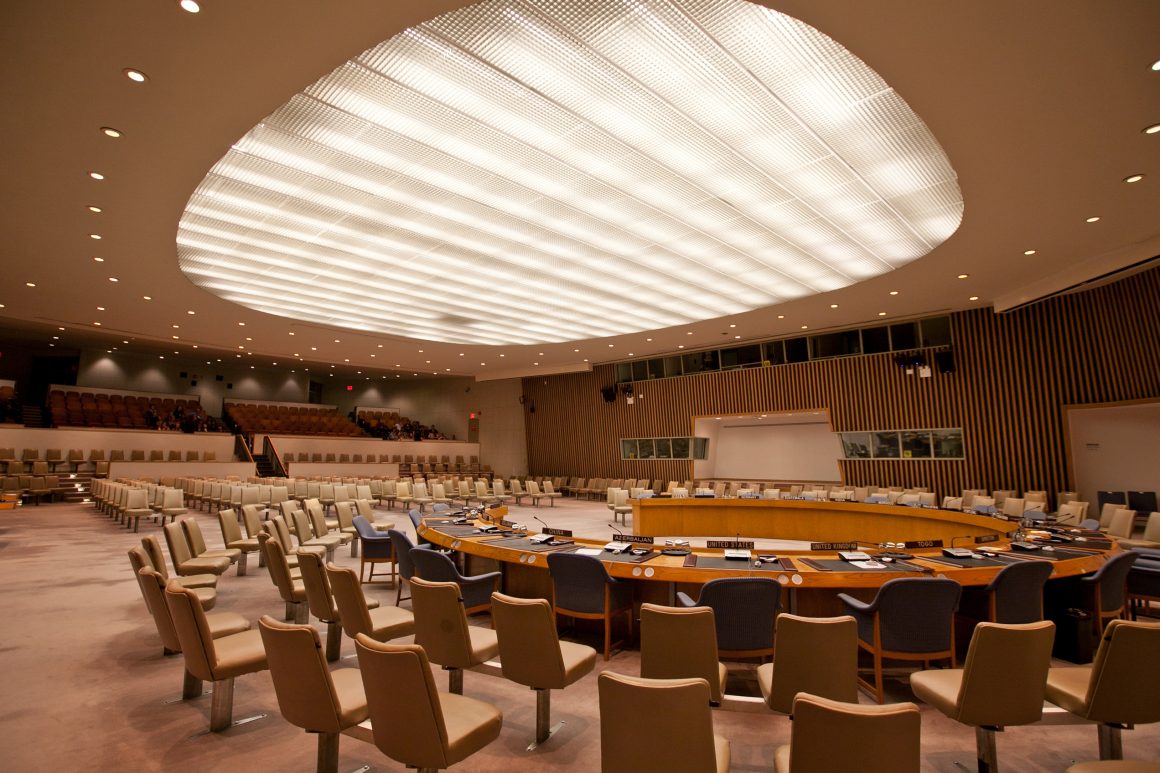
Canada’s pursuit for UN Security Council seat test of diplomatic prowess
By Kayle Van’t Klooster, November 7 2018 —
Canada’s campaign for one of 10 non-permanent United Nations Security Council seats is a true test of the Trudeau administration’s diplomatic prowess. The government has encouraged all of its diplomats to approach their foreign counterparts and lobby them for their support in the upcoming vote, a task they were no doubt busy with during the most recent meeting of the UN General Assembly.
The Security Council is the most powerful body in the UN. It has the authority to issue binding resolutions on the rest of the member states and is the sole institution that authorizes military intervention and the deployment of UN peacekeepers.
However, the bulk of this power is not in the hands of the non-permanent members. Instead, it’s held by the permanent five (P5) — the United States, France, the United Kingdom, Russia and China. The power these states hold goes far beyond the UN, as they also have most of the world’s economic and military power.
Though they sit at the same table as the P5, the non-permanent UN Security Council seats are largely just for show — like inviting the kids to join the adults at the big table. The non-permanent members hold no veto power, but they do get the privilege of being involved in high-level discussions and deliberations.
Still, these positions are important because if these discussions were only left to the permanent members, there would be no input from the Global South or other smaller, less powerful nations. Herein lies the true value of a non-permanent seat — it gives the holder the ability to punch above their weight class diplomatically.
Now, enter Canada. Punching above our weight class is what we’ve always done. Although we are far from a great power, we have a strong economy and an abundance of natural resources. We’re members of the G7 and countless other international organizations and alliances.
Furthermore, Canada has consistently been a leading voice for democracy and human rights worldwide. Take the recent spat with Saudi Arabia. Someone needed to stand up and say unequivocally that locking up feminist activists is not something that we will tolerate. That voice must come from somewhere and I am always proud when it is Canadian.
These values won’t change if we are unsuccessful in winning a seat on the Security Council. But if we do, it will be a significant win for Canada on the world stage. It would give us a platform to continue our legacy of peacekeeping and protecting human rights internationally, advocating for many who cannot do so alone.
The Trudeau government is right to pursue this seat as strongly as they are. We’re in a good position to win it, too. Our prime minister, like him or not, is adored internationally and the country is stepping into a new global leadership role. As America retreats from international leadership, Canada has gone the opposite direction by standing strong with our allies and fiercely advocating for democracy and human rights around the globe.
Kayle Van’t Klooster is a fourth-year International Relations Major at the University of Calgary. He writes a column for the Gauntlet about Canadian national and international affairs called “For Your Consideration.”
